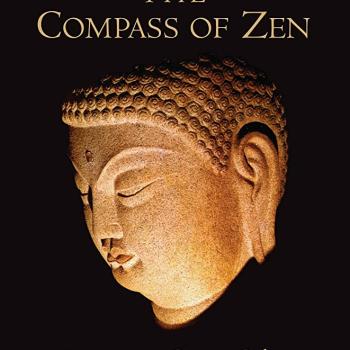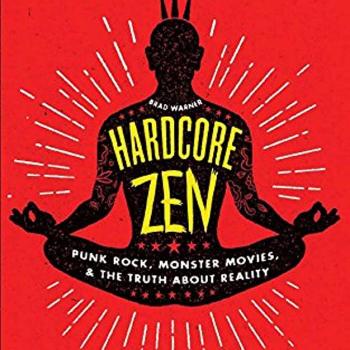17. Meditation practice is like tuning strings. It shouldn’t be too light or too loose. Overexerting ourselves can cause problems. Lazy practice keeps us ignorant. Practice with a calm and clear mind, attentive and serene.
This makes me think of working out. It’s not a good idea to spend hours and hours at the gym every day. But, if we just go when we feel like it, without a routine or plan in place, we probably aren’t going to see a lot of results. Meditation practice is the same way. We need a balance in everything.
18. If you attain just a little progress in your meditation, you’ll be serene at the time of your death.
Meditation expands our awareness and helps us dispel ignorance. Ignorance and attachment are the things that make us really fear death.
19. There are some who study philosophy and seem enlightened when they speak. But when faced with normal situations they don’t know what to do. This shows the difference between words and actions.
Studying and talking about the Dharma are good things. But they don’t mean anything if we don’t practice. This is a path of action. And if it doesn’t help us in our day to day life, what good is it?
20. If you want to be free of the world of suffering, you must hold fast to the teachings and subdue your mind.
Enlightenment is the way out of suffering and it’s right here. We might sometimes forget that this is a goal oriented path. We are trying to lessen our suffering and the suffering of others. It’s important to keep that in mind and to hold fast to the teachings because they help us in that endeavor.
21. And even if you have a lot of insight, you should work with a teacher.
It’s probably a good idea to study with a teacher, or at least a community. This helps to keep us on track. We might not be very diligent if we think we’re in it alone. We aren’t in it alone. We’re in this together.
22. I hope all of you believe in your true self, neither lacking confidence nor giving rise to pride.
This is Great Faith again. We want to believe in ourselves on the path, to believe we can do it is important. Pride could arise in us, but if we understand that we share the same nature with all beings, then pride doesn’t make sense.
23. Practicing with a deluded mind adds to ignorance.
We just need to make sure we’re practicing in the right way and for the right reasons. This is another area where having a teacher and community are helpful. We aren’t practicing to be better at making money or other worldly successes. We’re practicing to lessen the suffering of ourselves and others.
24. The point is to cut off discursive thought. The Enlightenment of the Buddha and the masters is nothing more than this.
If we can stop discursive thinking, that is, the state when our minds are jumping around between memories and imagination, if we can just BE HERE NOW, then we can stop dwelling in delusion and see things as they really are. If we can see things as they really are…that is Enlightenment.
25. You don’t have to discard the mind. And seeking Enlightenment is a mistake. Just strive to keep your true self from being defiled.
There’s no real seeking or discarding. Our true nature is already here, so there is nothing for us to seek. Our delusions are imaginary. They’re like ghosts, there’s really nothing to hold onto. So there’s nothing to discard.
26. To practice cutting off defilements is dualism. Just keep the mind where no defilements appear.
The idea of cutting off rests in duality, assuming there’s a here and there, self and other, good and bad. These are just other ways of putting things into nice little categories that don’t really match reality.
27. Reflect deeply into the mind to empty it. Then you can understand that the coming and going of even one thought is an illusion. Nothing ever comes or goes.
We identify so strongly with our thoughts sometimes. In the end they are ephemeral. Thoughts have no existence that we can point to. And they come and go much faster than anything else in this impermanent world.
28. If you look deeply into yourself, you see that killing, stealing, sexual misconduct, and lying all arise from one mind. And when the mind from which these things arise is empty and still, what defilement could appear?
Four of the five precepts are listed here. They are the basic guidelines for morality in Buddhism. The five precepts are often listed as:
The First Precept: I vow to support all living creatures, and refrain from killing.
The Second Precept: I vow to respect the property of others, and refrain from stealing.
The Third Precept: I vow to regard all beings with respect and dignity, and refrain from objectifying others.
The Fourth Precept: I vow to be truthful, and refrain from lying.
The Fifth Precept: I vow to maintain a clear mind and refrain from harming myself or others with intoxication.
Only the first four are listed by So Sahn here and I think that’s because they are more obvious in the ways they harm others. When we still the mind and see our true nature, then we aren’t so bound up in our selfishness. So, we aren’t making enemies out of other people all the time. We’re committed to helping others instead of harming them.
—————————————————————————–
Daniel Scharpenburg is a meditation instructor and dharma teacher in Kansas City. He regularly gives teachings through the Open Heart Project, the largest virtual mindfulness community in the world.
Find out more about Daniel on his website and connect with him on Facebook.
—————————————————————————–
UPCOMING EVENTS
10/24/17:
Dharma Talk: Confidence in Mind, Daily Dharma Gathering, online 7-7:30pm












